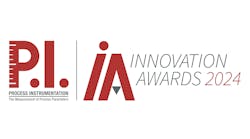British Petroleum (www.bp.com) said it will add an additional $1 billion to the $6 billion already earmarked over the next four years to upgrade all aspects of safety at its U.S. refineries and to repair and replace infield pipelines in Alaska.
According to the company, the spend is part of a wide-ranging package of measures aimed at improving confidence in the integrity of BP”s U.S. operations following a series of incidents over the past 18 months, including last year”s explosion at the Texas City refinery, a recent oil spill in Alaska, and the investigation into propane trading activity in the United States.
Speaking in London, BP chief executive Lord Browne said the company would appoint an advisory board to assist and advise BP’s US subsidiary, BP America Inc. and its new chairman, Robert A. Malone, in monitoring the operations of BP”s U.S. businesses with particular focus on compliance, safety, and regulatory affairs.
As part of its planned investment, BP intends to step-up the scale and pace of spending at its five U.S. refineries on maintenance, turnarounds, inspections, and staff training. According to BP, its spending in these areas will rise to $1.5 billion this year from $1.2 billion in 2005 and will jump further to an average $1.7 billion each year from 2007 to 2010.
Systems to manage process safety at the refineries will undergo a major upgrade, with some $200 million earmarked to pay for 300 external experts who will conduct comprehensive audits, and re-designs where necessary, of all safety process systems. The new systems are targeted to be installed and working by the end of 2007.
Browne said the input of the Occupational, Safety & Health Administration (OSHA, www.osha.gov) will be sought throughout the upgrade process and that the outcome would mirror or exceed OSHA”s requirements.
BP also pledged more rapid action to restore the integrity of its infield pipelines in Alaska. With corrosion monitoring already upgraded, it now plans to remove pipeline residues — through a process known as "pigging" — by November.
Any necessary bypass lines are being built this summer and BP is making its own arrangements for the safe disposal of pipeline residues. The work is expected to cost some $50 million and entail the loss of around 40,000 barrels a day of production — 11,000 barrels a day BP share — for up to a month.
The pipeline that leaked in the recent oil spill has been taken out of service and will be replaced by a new line, which has already been ordered. If other transit lines are found to be faulty, they will also be replaced.
Browne said a major review by independent external auditors will examine BP”s compliance systems in its U.S. trading business. In the wake of allegations of market manipulation in U.S. propane trading, the auditors will examine the design of the trading organization, delegations of authority, standards and guidelines, resources and the effectiveness of control and compliance. The results of the review will be shared with relevant U.S. regulatory authorities, and the auditors” recommendations will be urgently acted upon by BP, noted Browne.

